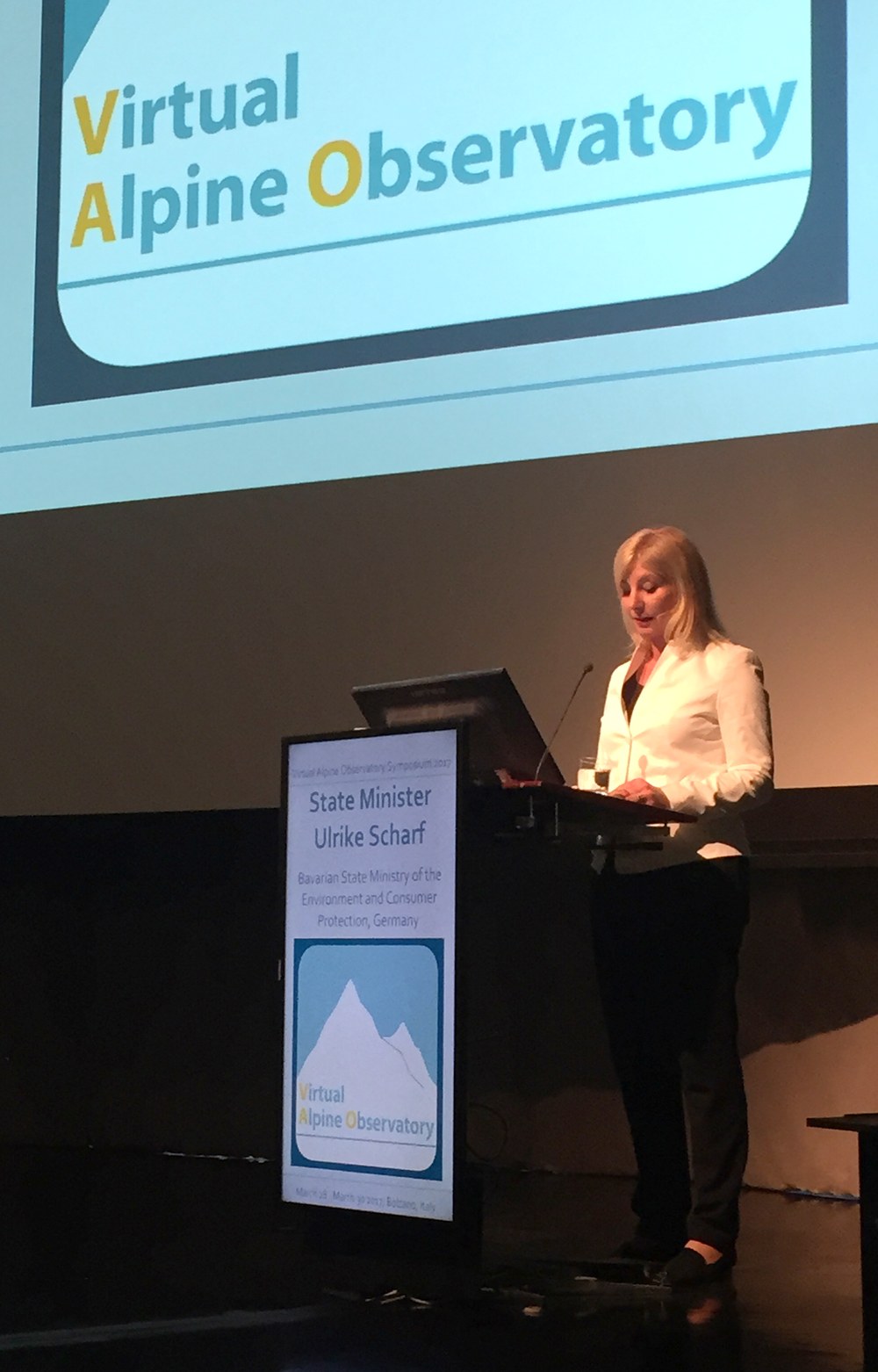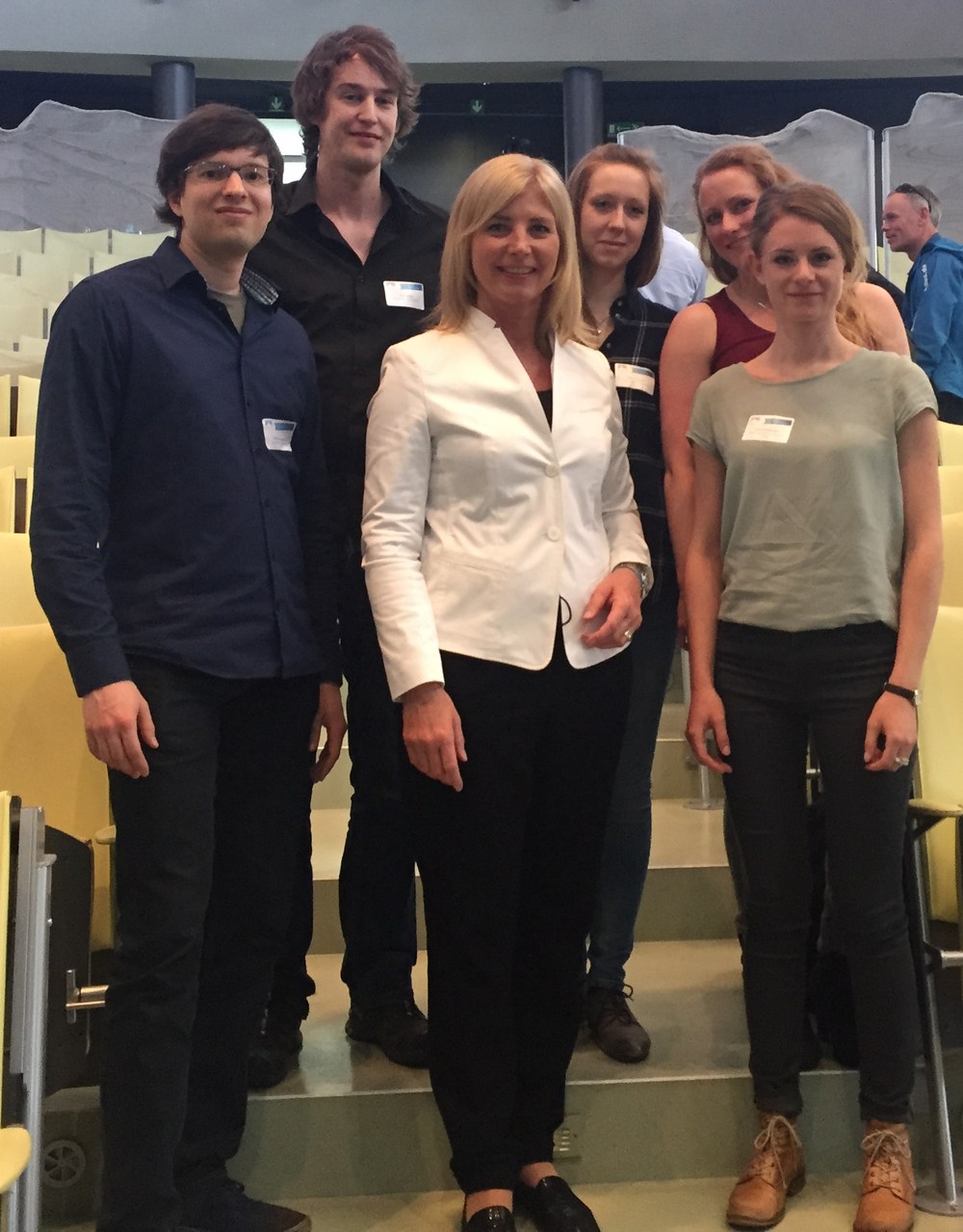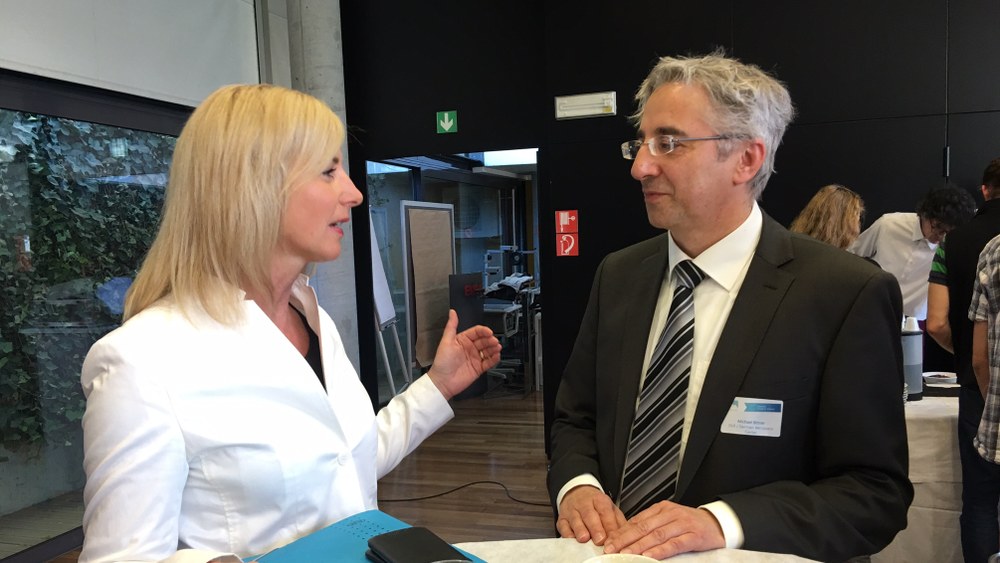Virtual Alpine Observatory (VAO): Climate Change Research in the Alps
The 4th Symposium of the Virtual Alpine Observatory (VAO) took place from 28 - 31 March in Bozen, Italy. Technological and scientific progress was described in over 50 presentations. Bavarian Minister of the Environment and Consumer Protection, Ulrike Scharf, also attended. She stressed the importance of VAO as an instrument of cross-border research on climate change and its consequences. Bavaria currently contributes about €3 million toward financing VAO.

The Virtual Alpine Observatory was established in 2012 as a network of European high-alpine research stations. In the meantime it has representatives from eight countries: Germany, France, Georgia, Italy, Norway, Austria, Switzerland and Slovenia. Scientific questions relating to the atmosphere, biosphere, hydrosphere, and cryosphere, as well as possible environmental influences on health can be addressed in a depth only possible with this kind of international and interdisciplinary pooling of strengths.

The Alps are one of the regions on earth particularly affected by climate change. Here the average temperature has increased by some 2.0°C since 1900, while the European value of 1.2°C is only about half as high. Mean global warming is around 0.8°C. It can be expected that the relatively sharp increase in warming now being experienced in the Alpine region will not be without influence on various components of the environmental system there. The atmosphere, biosphere, hydrosphere and cryosphere form a complex system of interconnected processes. Changes in one area have an effect on all the others. The question of how this coupling functions is a central topic of current research. A comprehensive understanding of the complex Alpine environment system requires research that needs to be interdisciplinary. One of the purposes of VAO is thus to bring together scientists, engineers and technicians from most all of the above-named fields of environmental research. This makes it possible to investigate environmentally relevant subjects from various perspectives, creates synergies, and enables the formulation of wide-ranging approaches that could not be conceived without the network.
EOC participates in VAO by providing expertise on the dynamics of the atmosphere and on air quality. Its World Data Center for Remote Sensing of the Atmosphere, WDC-RSAT, is an important component of the Alpine Environmental Data Analysis Center, AlpEnDAC, which is being successively expanded into an environmental information system for the Alpine area.
VAO is part of the European Alpine Convention (an agreement to protect the natural environment of the Alps) and of the EU Strategy for the Alpine Region (EUSALP).

Die Ministerin im Gespräch mit dem VAO-Koordinator, Prof. Michael Bittner (Leiter der Abteilung Atmosphäre im EOC)
